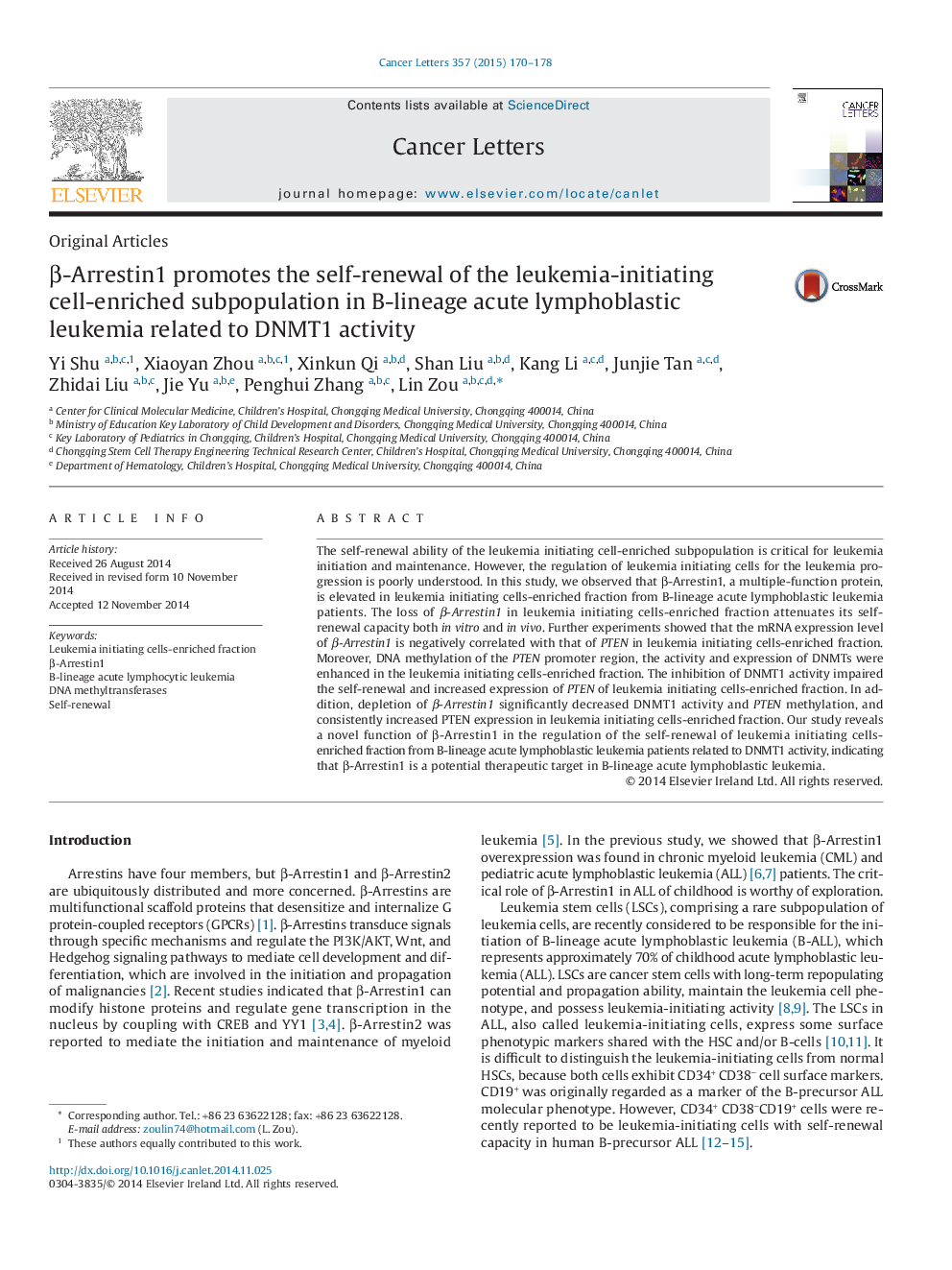| Article ID | Journal | Published Year | Pages | File Type |
|---|---|---|---|---|
| 10899579 | Cancer Letters | 2015 | 9 Pages |
Abstract
The self-renewal ability of the leukemia initiating cell-enriched subpopulation is critical for leukemia initiation and maintenance. However, the regulation of leukemia initiating cells for the leukemia progression is poorly understood. In this study, we observed that β-Arrestin1, a multiple-function protein, is elevated in leukemia initiating cells-enriched fraction from B-lineage acute lymphoblastic leukemia patients. The loss of β-Arrestin1 in leukemia initiating cells-enriched fraction attenuates its self-renewal capacity both in vitro and in vivo. Further experiments showed that the mRNA expression level of β-Arrestin1 is negatively correlated with that of PTEN in leukemia initiating cells-enriched fraction. Moreover, DNA methylation of the PTEN promoter region, the activity and expression of DNMTs were enhanced in the leukemia initiating cells-enriched fraction. The inhibition of DNMT1 activity impaired the self-renewal and increased expression of PTEN of leukemia initiating cells-enriched fraction. In addition, depletion of β-Arrestin1 significantly decreased DNMT1 activity and PTEN methylation, and consistently increased PTEN expression in leukemia initiating cells-enriched fraction. Our study reveals a novel function of β-Arrestin1 in the regulation of the self-renewal of leukemia initiating cells-enriched fraction from B-lineage acute lymphoblastic leukemia patients related to DNMT1 activity, indicating that β-Arrestin1 is a potential therapeutic target in B-lineage acute lymphoblastic leukemia.
Related Topics
Life Sciences
Biochemistry, Genetics and Molecular Biology
Cancer Research
Authors
Yi Shu, Xiaoyan Zhou, Xinkun Qi, Shan Liu, Kang Li, Junjie Tan, Zhidai Liu, Jie Yu, Penghui Zhang, Lin Zou,
